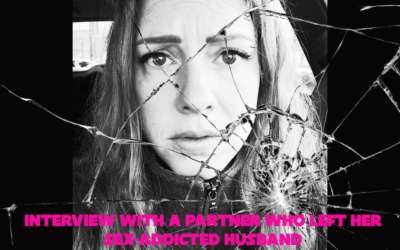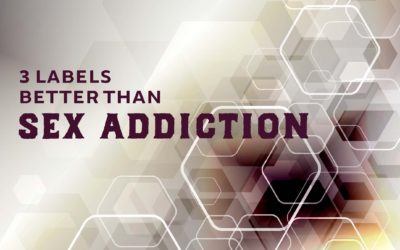HIGHLIGHTS
- Sex and porn addiction is not your primary problem
- Your addiction (any addiction) is the symptom and a function of your unmet needs
- There is a common unmet need that all our clients share
- There are two critical questions that will help you identify your unmet needs
- You cannot create sustainable growth without a comprehensive understanding of your unmet needs
- Because all of your behavior is a function of your unmet needs
- Lack of love for self lies at the heart of your void that you fill with your addiction
Listen to the podcast below and/or read the edited summary transcript below that.
Podcast Transcription (edited)
Let’s talk about love and unmet needs.
These two related concepts have had a profound impact on my life. I know, I know – for some of us men, these are mushy, sissy concepts that have nothing to do with why you’re here. But, just hang with me a bit. Let me explain how these concepts have impacted my life and practice and I’ll show you why they are critical to your success.
Let’s start with this statement:
I have never worked with someone whose primary problem was sex and porn addiction.
Before you go on, read that statement again.
Now, you may be saying, but I went to your website – that’s all you do. It’s true that while I work with people who are struggling with all forms of addiction and all forms of compulsive behavior, the overwhelming majority of my work is men struggling with some kind of compulsive, problematic sexual behavior.
And yet I’ll still maintain that I’ve never worked with someone whose primary problem was sex or porn addiction.
This realization was huge for me. I know that sounds strange, but hear me out. The most important word in that sentence is primary.
What’s the number 1 Problem?
In the first meeting with my one-on-one clients, 98-99% identify their sex and porn as being their number one problem. After 30 days in my one-on-one program, what do you think that percentage drops to? How many people on day 30 still identify their sexualy compulsive behavior as their number one problem?
Sixty percent? Forty percent? Twenty percent? Ten percent?
The answer is pretty incredible.
The answer is zero.
0%
That means 100% change their mind, realizing that sex and porn is not their number 1 problem. Sex and porn addiction is a symptom of a deeper problem. This problem is a profound, deep, intrinsic, real, a core component of a person’s identity. These men do not simply have a sex or porn problem.
The problem is: He hates himself.
Lack of love for self
Self hate implies a lack of love for self and it lies at the root cause of the sex and porn problem. As you dig deep on your journey, I promise you will find lack of love for self at the center.
The Mindful Habit System is the operationalization of love for self. “Operationalization” is a business term that I love. Let me explain the term, and I think you’ll understand why I love it. Basically, operationalization is the implementation of something new into the organization. In this case, the operationalization of self-love. We are aiming at love for self to be both realized and demonstrated through action.
I’m currently writing a chapter on unmet need for a new book and, to be completely honest, it’s became completely overwhelming. I am trying to hone in on unmet needs but I was just completely stumped because there is so much to say. There is Maslow’s Hierarchy of Needs, Tony Robbins’ Six Human Needs, and others. There are needs of the mind, needs of the body, needs of the spirit. There are so many different needs and so many different ways to structure these needs, that it became overwhelming. Finally, I read this great quote on thebenchmarkinstitute.org:
Maslow’s theory holds that human beings are motivated by unsatisfied needs. Lower needs take precedence over higher needs and must be satisfied first. When a need is mostly satisfied it no longer motivates and the next higher thing takes its place.
Maslow’s theory offers insight about the motivation behind difficult behaviors. When you are doing ‘the thing’, it’s meeting a powerful need in your life. What is that powerful need that this ‘thing’ is meeting? Try thinking about it this way: pretend that this ‘thing’ is completely 100% positive. Look at it from a purely positive perspective.
What need is this ‘thing’ meeting?
In some way, whatever ‘thing’ you are doing, you are numbing, coping, and/or escaping. But numbing, coping, or escaping from what?
I believe that our compulsive behavior is an attempt to escape from this hole inside you. There is a part of you that you loathe. There is a part of you that you detest.
That you despise.
That you hate.
In a previous podcast, I talked about personifying your addict. If you are a member of the Mindful Habit Online Program, you know we hit this hard. Personifying your addict is where we pretend that you can reach inside you and grab that part of you, that addict, take him out and sit him down next to you. Then, you carry on a conversation with Addict – that part of you, also known as a subpersonality.
I want to review this concept, but if this is brand new to you, or you need a detailed reminder, go back and listen to the podcast on ‘talking to addict’ again because it’s critical.
Now, let’s review. What I call a Subpersonality is a separate and distinct part of you that has needs, wants, desires, and belief systems in conflict with other parts. Your addict is a perfect example of a Subpersonality. This is a part of you that wants to do that ‘thing’ that you know is not the best way to love, honor, and respect yourself.
This is not you firing on all cylinders.
This is not you being the best version of you.
But you listen to addict and you do it anyway. And you keep falling back into this place.
To break free, you need to personify your addict. Pretend he’s a separate and distinct persoN. He has wants, drives, and desires that are at odds with the rest of you.
Let’s talk to him without judgement. Let’s talk to him as if everything he’s doing is positive Let’s talk to him like we are having a constructIve conversation. Because this is the only way you are going to get anywhere with addict. Shame and judgement will not work.
As you personify the addict part of you, ask him two questions:
1) Where did you come from
2) What do you need?
Where did you come from?
This question will get us to the programming behind addict. This will help you understanding the events and experiences that led addict to construct the beliefs and habits that he did. This question will help you identify how addict got to this place. Where did he come from? What events can you identify that contributed to the beginning of addict’s behavior? How did this addict evolve over time?
Remember, this addict is you.
A younger version of you. It is that adolescent or inner child that you’ve heard about in other systems. This younger version of you encountered events and experiences that led him to create beliefs and habits to deal with whatever the events or experiences were. This addict was meeting his needs the only way he knew how.
He has been trying to numb
To cope
To escape
And he has been doing it with food, sex, drugs, alcohol, gambling, chronic self-deprecation, and the list could probably go on.
This is where your addict came from
And understanding where that part of you came from is critical.
But we’ve got to take the next step to identify his unmet needs.
What do you need?
As you ask your younger version of yourself this question, start by examining your compulsive behavior from a positive perspective. This will help identify your unmet needs.
Well, it helps me deal with life. It feels good. I mean, there’s so much suffering in my life. It feels good when I act out. It feels good. And I’m not thinking about all of my problems!
For some men, the only joy they have is when they are acting out. They look forward to it all day. This is what makes you feel good. But avoiding pain and problems are really only level one needs. There is a deeper level that we need to get to
To get to level two needs, we’ve got to go deep. I’m convinced that what you will find as you get to the root of your needs are separate and distinct parts of yourself that absolutely loathe youself.
Self-hatred
Self-loathing
These are feelings that create a hole that no substance or behavior can fill.
At the core of your affliction, of your addiction, of your chronic behavior, your compulsive behavior, your hypersexual behavior, – is a profound lack of love for self – because people that love themselves don’t do those things.
And so, for many of my men, your addict is missing love for self.
Some reading this may think I’ve lost it. And that’s ok.
I’m confident that once you start doing the work you’re going to get to this place. And, for those of you who are in relationships, you can’t give what you don’t have. You lack empathy. You lack compassion. You lack that deep, deep, deep sense of connection and love for someone else.
Why?
Most likely, you are somewhere on the spectrum of these following four things.
1)Physical abuse as a child
2) Mental abuse as a child
3) Sexual abuse as a child
4) Neglect
We’re all somewhere on this spectrum.
You may be thinking, but I haven’t had another these things happen. Maybe you don’t remember it, but I’ll bet that somewhere along the line
there was some neglect
there were emotional needs that weren’t being met
Maybe there were instances where you began to form a belief system that you’re not worthy, that you’re not good enough. This easily leads us to stop loving ourselves.
There are many reasons why this part of us festers; why it grows and ultimately begins to dominate our reality.
This is why understanding your programming is important. It helps you empathize with that part of yourself. It helps you connect with that part of you because those parts of you are not going away. So, you’ve got to get to know, to understand, to connect with, and to love these different parts of you.
When you start asking yourself the question; ‘What do I need?” You’ll start with all sorts of practical, superficial, but important needs. And as you continue, you will get to a place where you find an unmet need. And once you find this unmet need and it is awakened, a common denominator of all my clients is a profound, deep void, an absence, a lack of love for self.
Conclusion
At the core of who you are there is a hole and you’ve been trying to fill for so many years. I tried to fill my void with sex, drugs, with the external accoutrements of success – my job, my title, my car, the initials after my name, the size of my office, the painting I had in my office. External stuff.
But what I needed, and what we all need is Internal Validation.
You ARE good enough
You ARE smart enough
People like YOU.
It is so important that you believe that!
Because if you don’t believe it, it’s going to infect you like a cancer.
Love yourself!
Love that addict part of you!
Love every fiber of your being and love yourself where you are. Guess what’s going to happen? You are going to grow in profound ways that you never before dreamed imaginable.
If you want to accelerate this love for self, and you’re struggling with compulsive sexual behavior, then get your asses in The Mindful Habit Online Program today! Five group coaching calls per week, video lesson, with exercises to guide you through this process and more.
Aggressively pursue a great life and love yourself all the time. Operationalize love for self by eating healthy, hydrating your body, exercising, practicing mindfulness and sleeping well. You take care of those five things, what we call The Fundamental Five, and your love for self will become operationalized.
Go love yourself! Stop telling me you love yourself!
Go Prove it!
Fear & Loathing In Sex Addiction: How The Fear Habit Is Holding You Back
Listen to "What Are Your Habits Around Fear? And What To Do About It!" on Spreaker. Read an Edited Transcript of the Show: What I want to talk about today is the habits around fear. How is fear manifesting itself in your life? We all know we're afraid....
This Non 12-Step Recovery for Drug-Alcohol Addictions Too?
Can this non 12-Step approach to porn & sex addiction recovery from The Mindful Habit also work for those with drug & alcohol addictions?So, for the record, I’m not a sex or pornography addict. I’m not into hookers or sex chats or videos or anything really...
Elevating Sex Addiction Treatment: An Interview with Bill Herring
In this post, I interview Bill Herring, a clinical social worker with a private psychotherapy practice in Atlanta. In addition to providing general psychotherapy services, Bill is a specialist in treating noncriminal problematic sexual behaviors. He’s a former board...
Mindful Masturbation: A Christian Perspective on Masturbation
In this episode of "Sex Addictions and Porn Afflictions," Craig Perra, certified professional coach and Founder of the "Mindful Habit to End Compulsive Behavior," walks you through the process of confronting and talking to that voice in your head -- your addict...
The Arrogance of the Sex Addict: Donald Trump and Stormy Daniels and More
Highlights Craig reflects on news about Donald Trump’s payout to a porn star and a close friend’s arrest How low can our compulsive sexual behavior take us? What risks are we creating in our lives by continuing in our behavior? The Arrogance of the Sex Addict: Donald...
Busted for Sexting a Minor: An Interview with Joshua Shea
Highlight Craig interviews Joshua Shea, author of The Addiction Nobody Will Talk About Joshua was arrested for texting an underage girl and or possession of underage porn Unhealthy sexuality will take us to darker places than we ever imagine Busted for Sexting a Minor...
Behind the Mask of the Sexual Harasser
Highlights Sexual harassers come across as cocky and powerful. The principle of subpersonalities can help us see and understand the part of the harasser that acts in inappropriate ways. These different subpersonality of the sexual harasser usually feels insignificant...
I Behaved Like Harvey Weinstein
Highlights The allegations against Harvey Weinstein include multiple accounts of sexual harassment, even sexual assault. Craig reflects on ways he has acted like Harvey Weinstein. This situation should force all men to look at our own behavior How have we violated...
Interview with a Partner Who Left Her Sex-Addicted Husband
Highlights Craig interviews Alison, a partner who left her sex-addicted husband. Describes her experience of being gaslighted by her husband. Through research, Alison found help with The Mindful Habit. Ultimately, she made the decision to leave her husband and is now...
3 Labels Better Than “Sex Addiction”
Highlights We need labels that help us move beyond “sex addiction” and “porn addiction.” Other labels are important because “addiction” is limiting. Two important issues are intimacy and authenticity. Acknowledging the nature of your behavior is as important step...














0 Comments